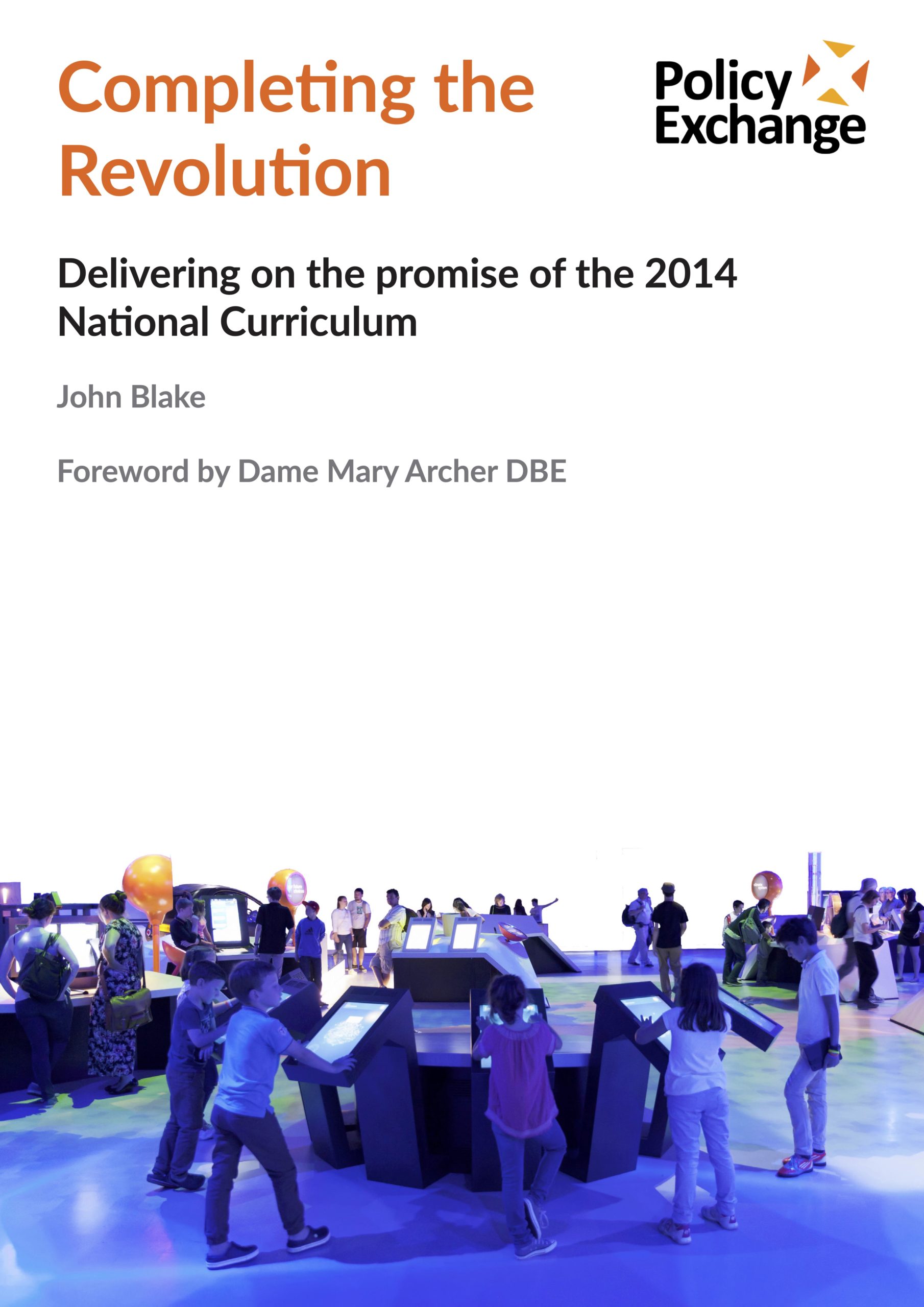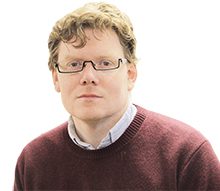
Completing the Revolution: Delivering on the promise of the 2014 National Curriculum
High-quality textbooks and teaching methods are needed to ensure children from all backgrounds receive the rigorous education they deserve.
According to this new Policy Exchange report, Completing the Revolution: Delivering on the Promise of the 2014 National Curriculum, inadequate materials for teaching the National Curriculum are holding back pupils in England and increasing teacher workload. Working in collaboration with respected institutions like the British Museum, the Government should support the creation and take-up of world-leading curriculum materials.
The report highlights that:
- Only 10% of teachers use textbooks in more than half their lessons, and even fewer expect to be doing so by 2020;
- Teachers have been trained to believe that they need to make as many of their own resources as possible, adding significantly to their workload;
- Many teachers rely too much on unregulated and free online resources, many of which are poor quality.
The implementation of the 2014 National Curriculum has stalled. Without rigorous curriculum materials, there is no guarantee that all children will receive the broad and balanced range of learning promised by the law. This damages social mobility by denying children from poorer backgrounds the best education possible and holds back the economy by failing to equip our future workforce with a command of the basics.
It is not for government to produce curriculum resources for schools; Policy Exchange believes that confidence is likely to be higher in the quality of the materials designed by high-status institutions such as museums, the Royal Societies, high-performing multi-academy trusts or respected academic publishers. The recommendations in Completing the Revolution include:
- The government’s £7.7 million curriculum fund should be used to provide seed funding for rigorous ‘oven-ready’ resources by trusted institutions already involved in education, and for a “match-making” exercise for teachers who may wish to expand the reach of their own high-quality resources.
- The Teaching and Learning Innovation Fund and the Strategic School Improvement Fund should be merged into a single “School Improvement Fund” with a curriculum strand from which primary schools and schools in Opportunity Areas could bid for funding to deploy resources.
- Ofsted should include assessment of curriculum quality in its new framework – due for review in 2019.
- Achievement of Qualitied Teacher Status should require teachers to demonstrate that they can create small scale resources, but the majority of teaching by newly qualified teachers should be based on material created by others.
- All schools judged to be “coasting” or “requires improvement” should be compelled to use externally-provided resources.
Policy Exchange’s Head of Education and Social Reform John Blake, who wrote the report and is a former teacher, said:
“A knowledge-rich curriculum benefits children of all backgrounds. The new National Curriculum was much needed, but is in danger of not delivering its promise because too many teachers aren’t using the best resources.
“Workload is one of the major issues for most teachers and producing resources is one of the major sources of that workload. We shouldn’t be expecting teachers to make all of their resources for every lessons themselves and it’s madness that teacher training promotes this as routine. Countries like Singapore, where learners excel, use textbooks much more than English schools and report higher achievement and lower teacher workload. The teaching unions have resisted textbooks and other effective materials for purely ideological reasons, which harms both children and their own members.
“We need to ensure that classroom teachers have the most effective tools available to lead their students’ learning, not expecting them to produce everything themselves. Government shouldn’t be developing curriculum resources – institutions like museums, school groups and publishers should.
“There are government funds already earmarked for curriculum development and school improvement which should be joined up to fund experts to develop the best possible resources. This will be good for pupils’ education and rebalance teachers’ workload to make teaching a more attractive profession. This is an opportunity for the new Secretary of State to improve the quality of education for England’s children and ease the workload of teachers.”

